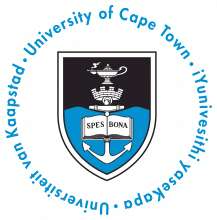A new “Russell-Group type” alliance of the top universities in Africa will boost higher education across the continent and encourage more Western collaborations with African universities outside South Africa, according to the British Council’s director of education and society.
Last year, 15 research-intensive institutions from eight African countries launched the African Research Universities Alliance (ARUA), aimed at improving training and support for PhD students, capacity-building and collaborative research.
Jo Beall said that the alliance was “an effort to get a type of African Russell Group of the better-ranked universities, but not only in South Africa”. Although the ARUA includes six South African universities, institutions in Nigeria, Ghana, Uganda, Kenya, Tanzania and Senegal are also members.
Professor Beall told Times Higher Education – which is holding its own Africa Universities Summit this week in Ghana – that at the moment universities in North America and Western Europe “only want” to collaborate with a select group of top universities on the continent, most of which are in South Africa. Consequently, these institutions are “oversubscribed and have to fight people off”, while other universities lack the same opportunities to collaborate.
However, she added that although the alliance is “absolutely” the right direction for the continent, it has been “difficult for those universities to negotiate, because there is a sense in Africa that everyone must be equal”.
“The differentiation of the university system, the allowance for research universities to emerge and be better resourced, has been a difficult argument to win,” she said. “It wasn’t long ago in the UK that that was a difficult argument to win.”
Speaking to THE ahead of the British Council’s annual Going Global conference, which will be held in Cape Town from 3 to 5 May, Professor Beall added that universities in the West must recognise both the opportunities in Africa as well as the contributions that they can make.
“When I work with private sector partners in Africa and we go to a place like Lagos or Nairobi, [the companies] say, ‘We see opportunity – there’s so much to invest in.’ When NGOs go in, they say, ‘We see so much poverty and destruction, we want to help.’
“I think the higher education sector needs to fall somewhere between those two, to see opportunity in the same way as the private sector does and to recognise that to have equal partnerships you need to recognise that some people are starting at the wrong end of an un-level playing field,” she said.
She added that when the Going Global conference was being organised, African partners initially feared that it would be “imperialist and a takeover venture”. It is up to partners coming into Africa, she said, to “work hard to eliminate the suspicion, which is often well grounded historically”.
“Africans are incredibly welcoming, open-hearted and generous. And so their default position is to be welcoming. A long history of colonialism means their default position is to also be suspicious, even if that doesn’t come across,” she said.
Professor Beall was born in the UK but grew up in South Africa. She moved back to the UK after taking a master’s degree at the University of KwaZulu-Natal, but later returned to the country as deputy vice-chancellor (academic and international) at the University of Cape Town in 2009.
She said that while the universities in the country had “in legislative terms been desegregated” when she returned, they have still not “de-racialised” the academic population.
“The academic staff are still predominantly white, and successful black academics are often poached by other universities, often offering higher salaries,” she said.
This is particularly a problem in Cape Town, she said, because the city “has not desegregated to the same degree as cities such as Johannesburg and Pretoria”.
“Very often black academics move simply because socially and professionally they feel more comfortable in more desegregated, more open cities that demonstrate the impact of post-apartheid policies more readily,” she said.
However, she continued, “the world has moved on beyond the brain drain debate” and the “brightest and the best are fair game for whoever can attract them in the global higher education marketplace”.
“If you’re a very talented scholar who’s committed to research and you’re living in a country that doesn’t pay enough money, where you’re driving taxis in the evening to supplement your income, where you teach until you drop but never get a sabbatical to do research, I think brain drain is a justifiable response,” she said.
“I had a South African background and came to the UK for 20 years before I went back to South Africa. A lot of people do that. I would hope that my brain was circulating and not draining.”
POSTSCRIPT:
Print headline: African alliance will ‘boost’ sector and work with West
Register to continue
Why register?
- Registration is free and only takes a moment
- Once registered, you can read 3 articles a month
- Sign up for our newsletter
Subscribe
Or subscribe for unlimited access to:
- Unlimited access to news, views, insights & reviews
- Digital editions
- Digital access to THE’s university and college rankings analysis
Already registered or a current subscriber?









